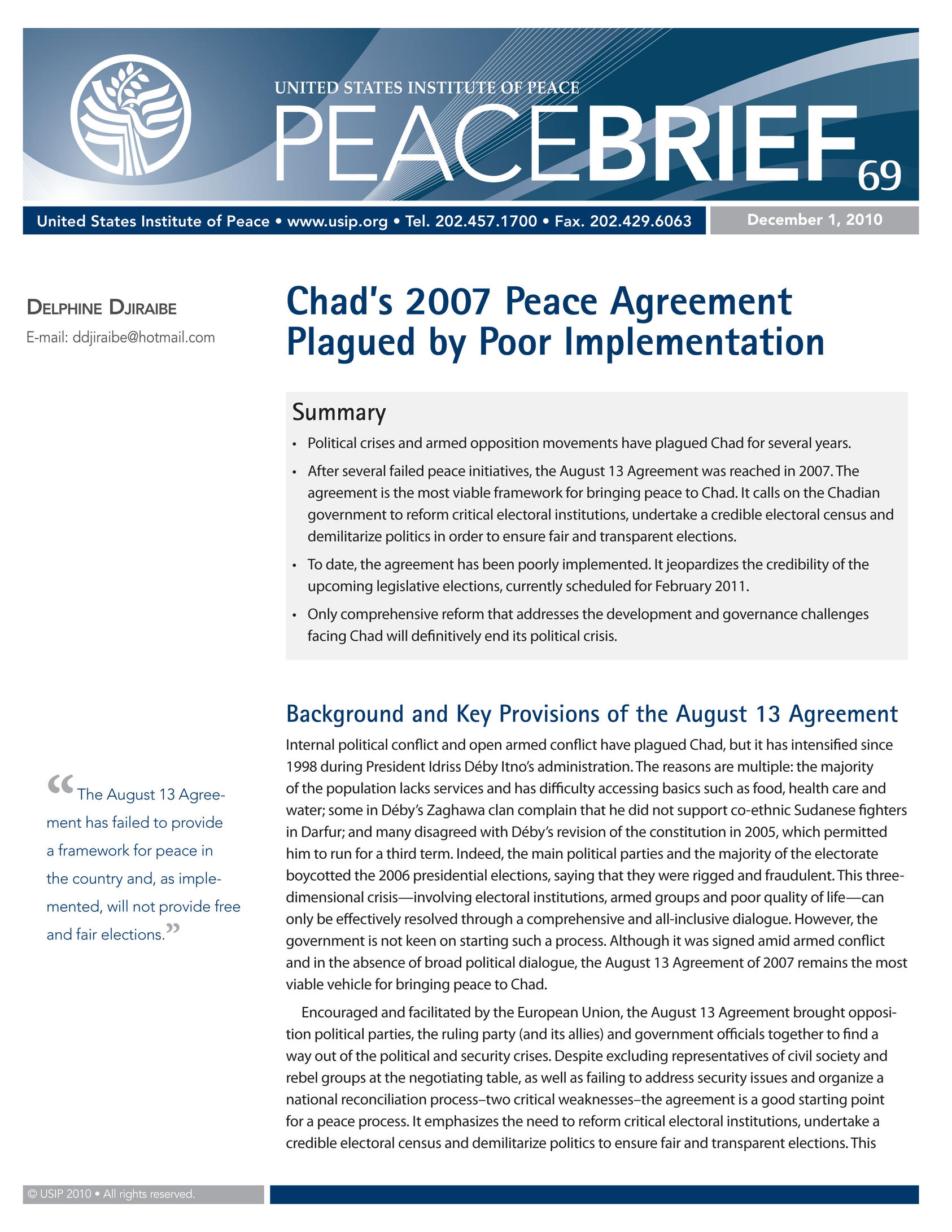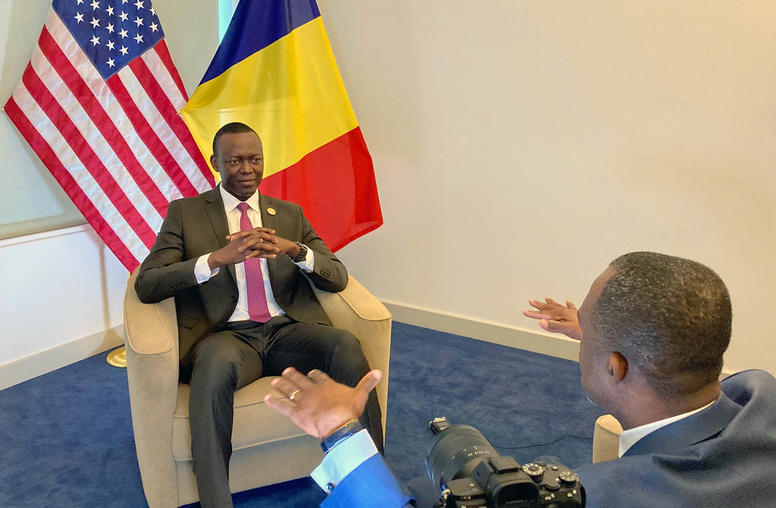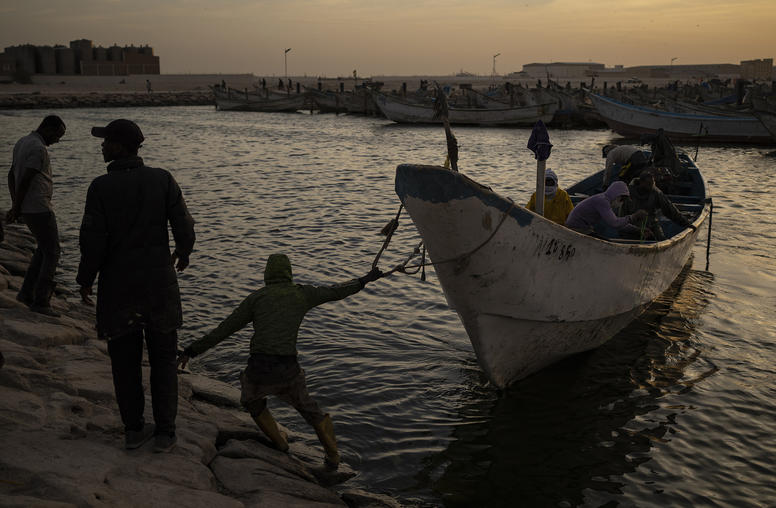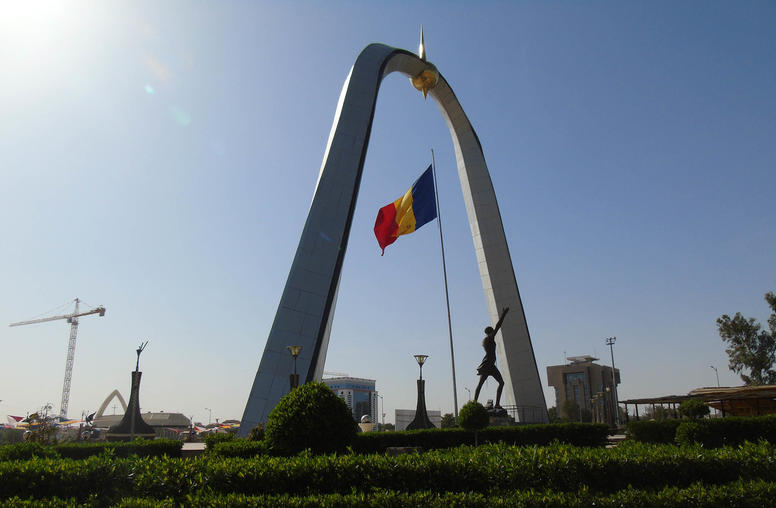Chad’s 2007 Peace Agreement Plagued by Poor Implementation

Summary
- Political crises and armed opposition movements have plagued Chad for several years.
- After several failed peace initiatives, the August 13 Agreement was reached in 2007. The agreement is the most viable framework for bringing peace to Chad. It calls on the Chadian government to reform critical electoral institutions, undertake a credible electoral census and demilitarize politics in order to ensure fair and transparent elections.
- To date, the agreement has been poorly implemented. It jeopardizes the credibility of the upcoming legislative elections, currently scheduled for February 2011.
- Only comprehensive reform that addresses the development and governance challenges facing Chad will definitively end its political crisis.
About this Brief
This Peace Brief assesses the status of implementation of the 2007 peace agreement in Chad and reviews its accomplishments and continuing challenges. Delphine Djiraibe is founder and chief attorney of the Public Interest Law Center in Chad and the coordinator of the Comité de Suivi de l’Appel à la Paix et à la Réconciliation. She is the 2004 recipient of the Robert F. Kennedy Human Rights Award. Part of a series on Chad, this brief was originally presented at a conference organized by the U.S. Institute of Peace and the International Peace Institute on May 20, 2010.



